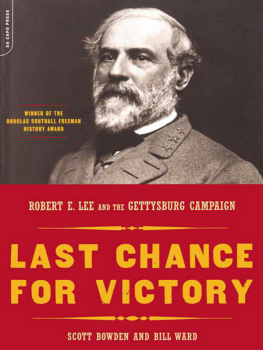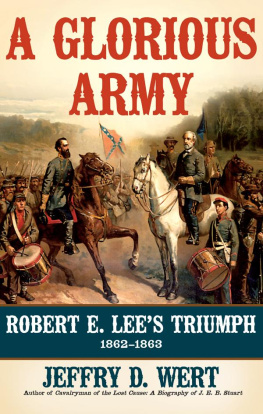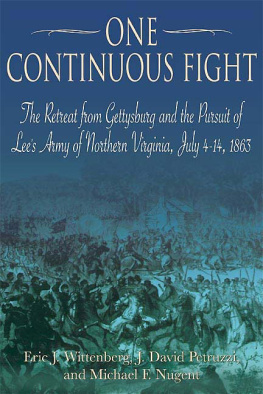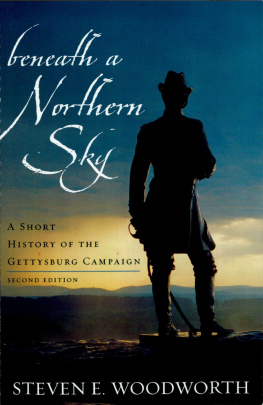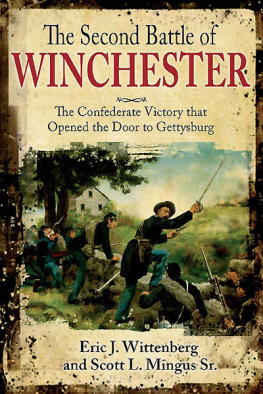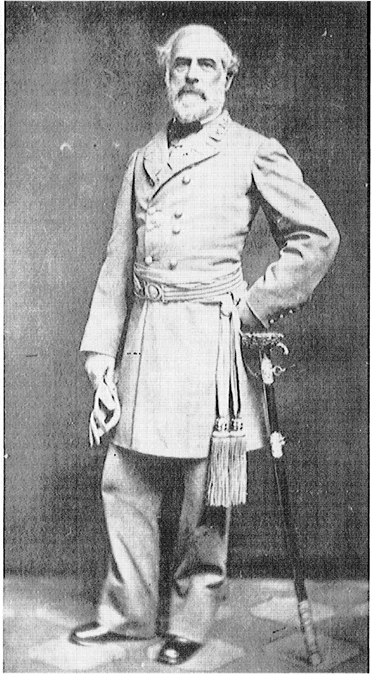Preface
More has been written about Gettysburg than any other battle in American military history. Tens of hundreds of books and articles had been printed on the subject. Even bits and pieces of the fighting have received book-length treatment. For example, a large monograph appeared recently covering in minute detail the fighting for Culps Hill and Cemetery Hill; another and even larger volume by the same author examined the fighting on the southern end of the field on July 2. Even the skirmishing around the Bliss Farm, a small complex of buildings improbably situated between two low ridges that would feel the tramp of thousands of feet marching in one of the greatest assaults in military history, has received lengthy attention.
We were thus not surprised when students of the War for Southern Independence reacted, at least initially, with some skepticism to the news that we were intending to add to this deluge of ink. Do we really need another book about Gettysburg and Picketts Charge? they often asked. The short answer to that question is yes, another book is necessary. And the following paragraphs explain why.
Many generations have passed since the great armies clashed in southeastern Pennsylvania and almost 50,000 men in blue and gray were killed, wounded or captured in a supreme display of conviction and courage on both sides. Efforts to interpret exactly what had happened and why began almost immediately. Men in the ranks discussed the great events comprising the three days in July; letters found their way home praising heroic efforts and lamenting lost opportunities. And the seeds of discordspread initially in whispered conversation, hinted at in battle reportswere sown for later generations to harvest. Murmurs of misconduct (and worse) commenced soon after the fighting stopped, but after General Lee died in 1870, Southern mischief makers like Jubal Early and William Nelson Pendleton kicked their slander and libel efforts into high gear. Many of their fabrications, printed in one form or another and delivered in speeches across succeeding generations, have braided themselves into the original fabric of the battle. Variations of their vitriol have emerged as accepted reality. Other mistakes, some great and others less so, have been repeated so often they are now looked upon as gospel. Modern historians, steeped in Gettysburg tradition, have continued perpetrating these accepted facts of the battle without subjecting them to the cold and often unforgiving light of logic, reason, and objectivity. Consequently, significant misunderstandings exist and continue to be perpetuated about the generalship of Robert E. Lee during the invasion of Pennsylvania.
Many writers and most students of the Civil War today believe that Gettysburg was the nadir of Lees career; that his performance in Adams County during the first few days of July 1863 evidenced an overly combative and headstrong general who could not stem his impulse to throw his men away by the thousands in frontal attacks against George Meades Army of the Potomac. Lee, it is often said, issued discretionary orders to his key subordinates at critical momentsand lost control of his army; once engaged, the ailing commanding general displayed a passive form of personal generalship while asking of his men the impossible. Longstreet, tradition holds, ran roughshod over Lee, who allowed his corps leader to drag his recalcitrant heels in the Pennsylvania dirt as the hours ticked by on July 2 that could have been better used crushing the enemys left flank. Lees decisions doomed his legions to defeat. Most of this is simply assumed to be true.
But is any of this really true? What are the facts behind these assertions? Did Jeb Stuart have the authority to conduct a raid as the Confederate army moved north, and how did his absence affect the campaign? How does Lees generalship look when his decisions are judged within their proper historical context? What was Lee trying to accomplish in Pennsylvania? What were his goals on July 1 ? July 2? July 3? How did his key corps, division, and brigade subordinates perform?
The Gettysburg Campaign was a complex series of events and is now a celebrated part of our national heritage. Questioning its core dogma will be seen as heresy by many. But repeating stories because others continue to assert them as true is not good history, and does nothing to further the study of the campaign or honor the men who waged it. To illustrate this point, consider the criticism writers often heap upon Lee for committing the Army of Northern Virginia to the offensive on the second day at Gettysburg. After flaying him for his rashness, Lee is further condemned for the manner in which he attacked late on the afternoon of July 2, when (so tradition largely holds) Longstreet dripped his men into action in a piecemeal and largely frontal attack against Meades southern flank. As readers of Last Chance for Victory will discover, Lee had very good reasons for renewing the offensive that day, considerations rarely if ever seen in print. In fact, resuming the offensive was in accord with every sound military principle of the age and displayed in Lee a moral courage commensurate to the task at hand. Lee also carefully modified his original plan of attack that afternoon from a more standard flanking assault into an

